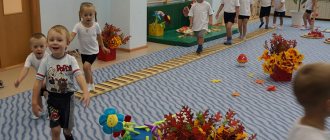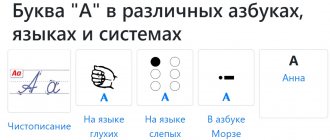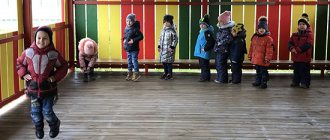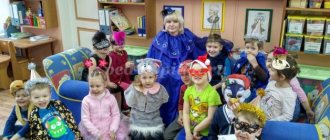Methodological development of the lesson-game “Transport. Professions of people in transport"
Methodological development of a lesson-game
using technologies of the system-activity approach
Subject
: "Transport. Professions in transport"
Direction:
speech development
Age group:
average group of compensating orientation
for children with severe speech impairments (4 years)
Author:
Tumasheva Olga Nikolaevna – teacher-speech therapist
Explanatory note
: this lesson-game summary is presented for the middle preschool age group of compensatory orientation for children with severe speech impairments. The final speech therapy session is carried out with elements of logorhythmic exercises, which are an effective means of speech development in children with disabilities and one of the techniques of health-saving technologies. The formation of cognitive activity and mental operations in children with SLD in the context of the implementation of the Federal State Educational Standard for Preschool Education can only fully take place in the systematic interaction of specialists from a preschool institution, which is presented in this material.
Target
: clarifying and consolidating children’s knowledge about transport, about the professions of people working in transport.
Tasks:
Educational:
- develop the ability to find a solution to a problem situation, encourage children to do it on their own;
- continue to develop the ability to listen carefully to verbal instructions and carry them out accurately;
— clarify and consolidate children’s ideas about transport and the professions of people who work on it;
— introduce children to the concept of “pedestrian”;
— consolidate the concept of “passenger”;
- consolidate knowledge and names of primary colors: red, yellow, green.
Speech: - clarify, activate the vocabulary on the topic with the names of transport: bus, trolleybus, car, train, plane, ship and the names of the professions of people who manage these types of transport: driver, driver, pilot, captain;
— expand your vocabulary with nouns: “passengers”, “pedestrians”, learn to pronounce them correctly;
— consolidate the ability to use the preposition “on” with a noun in the prepositional case (on the train);
— to develop the ability to use singular and plural instrumental case nouns in speech (ship, pilot, pilots);
- develop the strength and volume of the voice by pronouncing the vowel sound “u” and the syllable “bi”;
- improve speech breathing: inhale through the nose, exhale through the mouth.
Developmental: - improve the ability to navigate independently and confidently in space and in one’s own body;
- develop the ability to move in accordance with the nature of the music: march, light running on toes, stomping step; start the movement with the beginning of the music and end with its end; perform movements at a given pace;
- develop general motor skills, coordination and accuracy of movements, coordinate speech with movement;
- develop imagination, idea;
- develop visual perception, attention, and the ability to purposefully follow the gaze;
- develop auditory attention, perception, memory;
- develop logical thinking, be able to draw conclusions based on acquired knowledge;
- develop the ability to show an emotional state: joy, surprise;
Educational: - to cultivate in children an interest in transport and respect for the work of the people who work on it through solving a problem situation;
— cultivate a desire to help the bear, a sense of mutual assistance;
— cultivate the ability to listen carefully to the answers of your comrades.
Integrated areas
: cognitive development, artistic and aesthetic development, social and communicative development, physical.
Form of conduct
: subgroup (group).
Methods and techniques
: - questions for children;
— a visual demonstration of the presentation “Transport. Professions of people in transport";
— didactic game “Traffic Light”;
- speech games with movement: “Bus”, “Planes”, “Train”;
- musical and rhythmic movements;
— literary word: an excerpt from the poem “Traffic Light” by Zinaida Berezina-Khrushch;
- listening to musical works: “Teddy Bear Song”, music by V. Krivtsov, words by K. Ibryaev; “Bus” by E. Zheleznova; sounds of the surrounding world (train whistle);
Preliminary work:
- examination of illustrations on the topic “Transport”, “Professions of people in transport”;
— guessing riddles on the topic;
— didactic games: “The third wheel”, “Traffic light”, “Name the transport correctly”, “What did the artist mix up”;
— finger games “Car”, “Train”;
- visual and breathing exercises;
- reading fiction: V. Stepanov “Chauffeur”, “Trolleybus Driver”, “Pilot”.
— memorization of A. Barto’s poems “Toys”: “Airplane”, “Truck”, “Boat”;
- listening to the song “Steam Locomotive”, music by Z. Kompaneets, words by O. Vysotskaya, “Song of the Teddy Bear”, music by V. Krivtsov, words by K. Ibryaev;
- singing songs: “Machine”, music by T. Popatenko, lyrics by N. Naydenova; “Train”, music by N. Metlov, lyrics by T. Babajan; “Bus” by E. Zheleznova;
— artistic creativity: drawing “Bus”, “Truck”; modeling “Airplane”, “Boat”; construction from paper “Bus”, from builder
"Car"; applique “Boat”;
- targeted walks to the traffic lights, to the road.
Materials:
— multimedia installation; presentation “Transport. Professions of people in transport",
— d/i “Traffic light” with signals of three colors: red, yellow, green;
- building a “bus” from chairs.
Progress of educational activities
I. Introduction to the educational situation (organization of children).
Didactic task: to motivate children to participate in educational activities.
Children enter the music room and greet the music director.
Speech therapist teacher: Children, I hear that someone is coming towards us. Want to know who it is? Close your eyes and listen (sound recording “Teddy Bear Song, music by V. Krivtsov, lyrics by K. Ibryaev).
— Do you remember whose favorite song this is? (Yes). That's right, Mishka sings this song. Ah, here he comes to us.
(The teacher brings in a toy bear, Mishutka greets the children)
Speech therapist teacher: Children, let’s smile at Mishutka and say hello to him (children say hello)
II. Creating a problem situation, setting goals, motivating activities
Didactic task: to encourage children to help Mishutka learn about different types of transport and the professions of the people who drive it.
— Speech therapist teacher: Mishutka told me in confidence that he knows the transport, but cannot say who drives it. Can we tell him? To help Mishutka, we need to walk along the magic path to the music with a stomping step. If the music plays fast, we'll go fast. If the music sounds slowly, we will walk slowly (children move along the “magic path” to complete the task).
III. Designing a solution to a problem situation, performing actions.
Didactic tasks: to develop in children the ability to get out of a problem situation and choose options for solving it.
Speech therapist teacher: Look where we have come? (a bus is made from chairs) What could this be? (bus, car, trolleybus). How do we know what it is? (ask Mishutka, guess). - The song will help us guess.
(The music director performs one verse of the song about the bus by E. Zheleznova:
Here we are sitting on the bus, and sitting, and sitting.
And from the window we all look, we all look!
- Children, did you find out what this is? (bus) - slide 3.
— Shall we go by bus? Then take your seats... (Mishutka “sits” forward)
Children, together with adults, perform musical and rhythmic movements to the song “Bus” by E. Zheleznova:
Here we are sitting on the bus, and sitting, and sitting, tilting our heads to the sides.
And from the window we all look, we all look! – make a “window” out of your hands and peer into the distance.
We look back, we look forward, like this, like this - turning our heads back, forward.
Well, the bus is no luck. things are not going my way? - spread your arms to the sides in surprise, shake your head.
The wheels started spinning like this, like this - spinning with arms bent at the elbows.
We rolled forward like this! - stamp your feet in place.
And the brushes rustle on the glass: Whack-Whack-Whack, Whack-Whack-Whack - your arms bent at the elbows in front of you bend left and right rhythmically to the music.
All the droplets want to sweep away whack-whack-whack! – “shake” the water from your hands: to the right - to the left
And we don’t just sit there: beep, beep, beep, beep, - the children “turn the steering wheel” and pronounce this sound complex in a quiet voice.
We all hum loudly and loudly: beep, beep, beep! – the same movement, the sound complex is pronounced loudly.
Speech therapist teacher: - Children, we all rode together on the bus. Who drove our bus? (bear). Let's help him name his profession, who drives the bus? (driver) – slide 4.
- Who were we on the bus today? (passengers). If we get off the bus and walk down the street, who will we be? (pedestrians) – slide 5. (The word “pedestrians” is repeated more than once)
— Children and pedestrians should be very careful on the road. What helps them? (traffic light) – slide 6.
- Let's say this word all together.
Speech therapist teacher: - Children, Mishutka has never seen a traffic light and does not know how it works. Shall we introduce him to traffic signals? (Yes). Then be careful. On a green signal you will march to the music in any direction, on a yellow signal you will march in place, and on a red signal you will stand. (Game “Traffic Light”. Purpose of the game: consolidation of knowledge and naming of primary colors - red, yellow, green; development of visual and auditory attention; memory).
Speech therapist teacher: - Well done, you did the task well.
An excerpt from the poem “Traffic Light” by Zinaida Berezina-Khrushch is read to the children (on the slide):
And recently we have a traffic light near our house.
He burns day and night, trying to help everyone.
The train whistle and the sound of wheels are heard. What is this? (children's answers) - slide 7. Mishutka has never traveled by train, shall we go with him? Take your seats in the carriages.
(To the song “Train,” children take the child in front by the belt and move with a stomping step around the hall. Mishutka goes first.)
— How did you ride the train together? Tell the bear who controls the train? (driver) – slide 8.
Slide 9 is shown. Speech therapist teacher: - Children, who is this? (pilot). What does he control? (by plane) – slide 10. Let’s show Mishutka how we can fly planes?
Speech game with the movement “Airplanes”:
An airplane flies by - running around the hall in different directions, arms to the sides.
The pilot is flying the plane - stop, turn to the adult.
Right wing retracted - raise your right hand up to the side
Look - look at her.
Left wing retracted - raise your left hand up to the side.
They looked - look at her.
We started the engine: oo-oo-oo – pronouncing the sound “U” quietly while exhaling, gradually increasing the volume while simultaneously rotating the arms bent at the elbows with an acceleration of the tempo, at the end of the phrase, sharply spread your arms to the sides (2 times)
We are flying high now - flying around the hall after Mishka (running like a snake).
At the end of the music, “land” (sit down).
IV. Analysis of performance results, summing up.
Didactic tasks: to form an experience of understanding one’s own activities, to give an emotional assessment of the children’s activities.
— What type of transport did we not use today? — slide 11.
- Who controls it? (captain) – slide 12. But we will definitely travel on it next time
- Let's remember what we drove today? (by bus, by train, by plane) – slide 13.
- Who was Mishutka when he was driving the transport? (driver, machinist, pilot) – slide 14.
- Children, do you think we helped Mishutka find out who drives different types of transport? Did you have a desire to help? How did we help him? What did you do for this? (children's answers)
- What will you tell your parents?
- Let's ask Mishutka, did we help him? (Mishutka thanks the children for their help)
The teacher praises the children for completing various tasks.
Literature:
Bardysheva T.Yu., Monosova E.N. Speech therapy classes in kindergarten. Middle group. Publishing house "Scriptorium", 2003.
Nishcheva N. V. “Approximate adapted basic educational program for children with severe speech impairments (general speech underdevelopment) from 3 to 7 years (Third edition, revised and expanded in accordance with the Federal State Educational Standard) St. Petersburg Childhood - Press 2015.
Nishcheva N.V. Notes of subgroup speech therapy classes in the middle group for children with ODD. St. Petersburg Childhood - Press 2013
Smirnova L.N. Speech therapy in kindergarten. Classes for children 4-5 years old with special needs. Publishing house M: Mozaika-Sintez, 2004.
Presentation “Transport. Professions in transport." PPTX / 20.45 MB
On the topic: methodological developments, presentations and notes
The lesson was conducted with children 4-5 years old (middle age), in addition, a group on traffic rules was conducted in this group. Goal: to develop children's knowledge about the rules of the road. Objectives: to reinforce road rules with children.
During the lesson, in a playful way, ideas about the truck, the main parts (cabin, body, wheels) are formed, the names of the main colors are fixed, and the ability to lay out the car on a sheet of paper is ready.
Krnspect of direct educational activities.
Summary of organized educational activities “Special machines to the rescue” for children 4-5 years old with general speech underdevelopment. Integration of educational areas: “Socialization”, “Cognition”.
The lesson takes place within the framework of the thematic week “In the Land of Traffic Lights.” Lesson one. Lesson two – application “truck”.
The reason for organizing and carrying out this project was the fact that by confining themselves to televisions and computers, children began to communicate less with adults and peers, but communication is largely enriched.
The presented material is very convenient to use for organizing direct educational activities on the topic: “Transport” with young children.
Source
On the topic: methodological developments, presentations and notes
Notes for a lesson on speech development in the senior group.
Summary of a lesson on speech development in the senior group on the lexical topic “Dishes. Food".
Objectives: To introduce children to the sounds “v – v”; learn to identify sounds in words and picture names; practice pronouncing syllables and words, making sentences using cards.
Goal: To consolidate the skills of distinguishing and clear pronunciation of the sounds m, m' in syllables, words, phrases, learning to read syllables. Objectives: - to introduce the letter m; - to develop the skill of clear pronunciation.
Source
"The most daring professions." Summary of a drawing lesson on the topic “Special transport”
Evgeniya Zaitseva
"The most daring professions." Summary of a drawing lesson on the topic “Special transport”
Artistic and aesthetic development. Drawing
«Special transport»
Objectives: improve knowledge about life safety, continue to teach children to compositionally depict various types of transport (fire truck, ambulance)
in the city landscape, convey them by means of drawing (shape, structure, proportions, location on the sheet, supplement the drawing with characteristic details, bring the idea to completion. Develop color perception, imagination, creativity, the ability to evaluate your own work and the work of comrades.
Vocabulary work: outfit - a group of rapid response firefighters.
Equipment: an image of Dunno, a sample of a pedagogical drawing, illustrations depicting a fire, a fire truck, an ambulance.
Paper of various A-4 formats, colored pencils, wax crayons, napkins.





